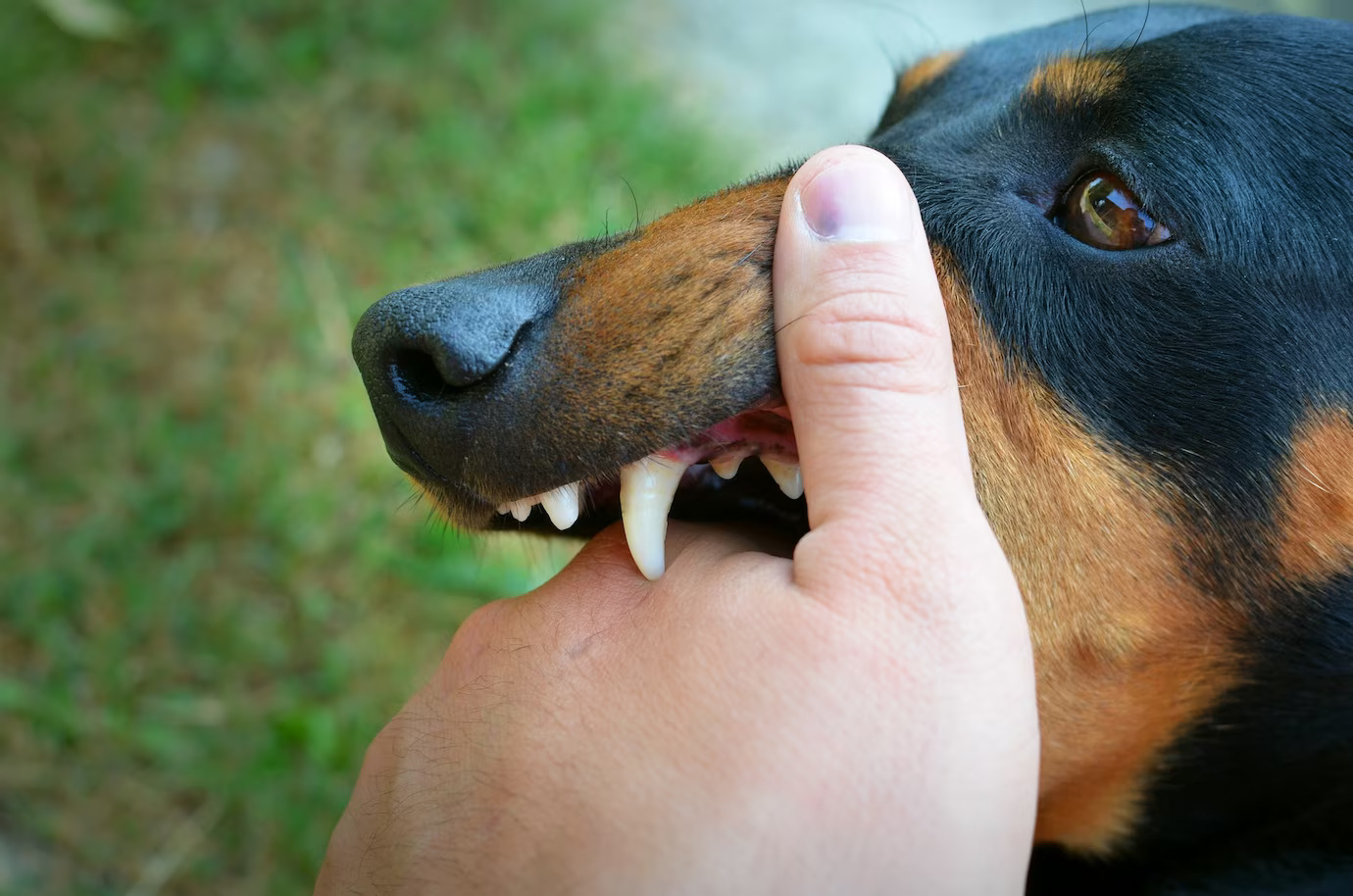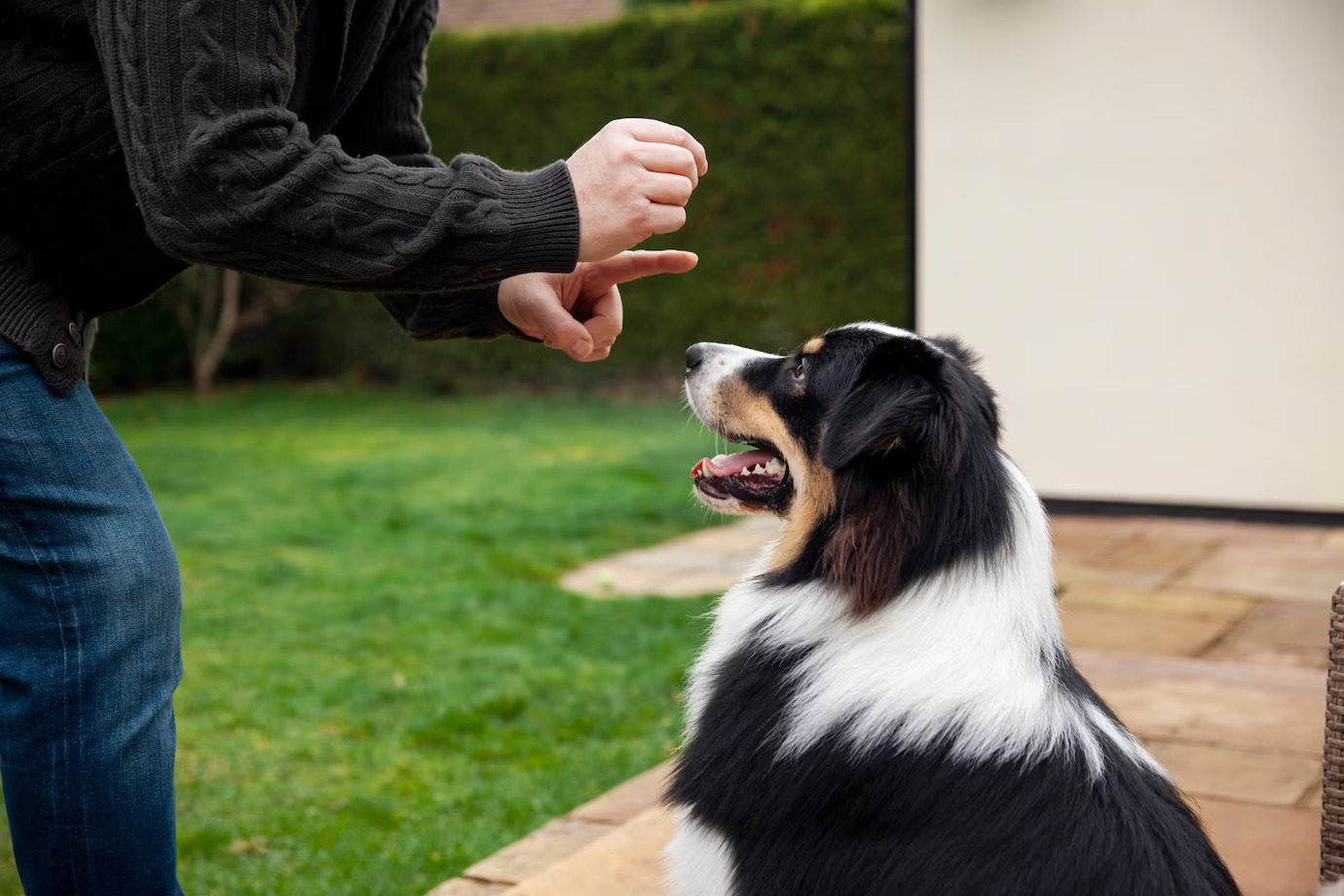
Welcoming a furry friend into your life can bring immeasurable joy and companionship. However, the occasional encounter with an unfamiliar dog can lead to unexpected situations, including dog bites. While relatively uncommon, these incidents require prompt attention to ensure your health and safety. In this article, we delve into the crucial aspects of dealing with dog bites, from understanding the prevalence of such incidents to identifying the signs that necessitate immediate urgent care in Bridgeport, CT.

Dog bites, though not an everyday occurrence, are more common than one might think. According to the Centers for Disease Control and Prevention (CDC), an estimated 4.5 million dog bites occur in the United States each year. While many of these bites are minor and do not require medical intervention, it’s essential to recognize when a dog bite warrants more than just a simple cleaning and bandaging.
Dog bites, though not an everyday occurrence, are more common than one might think. According to the Centers for Disease Control and Prevention (CDC), an estimated 4.5 million dog bites occur in the United States each year. While many of these bites are minor and do not require medical intervention, it’s essential to recognize when a dog bite warrants more than just a simple cleaning and bandaging.
The innocence and curiosity of children often lead them to approach dogs with boundless enthusiasm, sometimes without fully comprehending the nuances of a dog’s behavior. Their unpredictable movements and high-pitched voices can inadvertently trigger a dog’s protective instincts or anxiety, potentially resulting in a defensive response. As children may not recognize the subtle warning signs exhibited by dogs, parents and caregivers should be vigilant in educating youngsters about appropriate ways to interact with dogs. In cases of dog bites involving children, seeking immediate urgent care in Bridgeport, CT, is paramount to ensure proper wound care and prevent potential complications.
For older adults, reduced mobility and slower reactions can make it challenging to avoid sudden or aggressive behaviors from dogs. Their physical limitations may hinder their ability to quickly move away from a dog displaying signs of discomfort or aggression. In situations where an elderly individual is bitten, seeking urgent care in Bridgeport, CT, becomes crucial to assess and address the extent of the injury, as well as to prevent infections that may arise due to compromised immune systems.
Dogs Approaching unfamiliar dogs without caution, especially in unfamiliar environments, can lead to misunderstandings and potentially dangerous encounters. Dogs may perceive a stranger’s actions as threatening, triggering defensive reactions. In the event of a dog bite from an unfamiliar dog, seeking prompt medical attention, such as urgent care in Bridgeport, CT, is vital to assess the risk of infections and receive necessary treatments.
Even experienced dog owners can find themselves at risk of bites, particularly if their pets react unexpectedly or encounter unfamiliar situations. Dogs may exhibit unpredictable behaviors when exposed to new environments, people, or animals, potentially resulting in defensive reactions. Urgent care in Bridgeport, CT, serves as a critical resource for dog owners, ensuring that any bites are promptly evaluated and treated to prevent infections or complications.
Professions involving frequent contact with dogs, such as mail carriers or animal control officers, may encounter stressed, fearful, or protective dogs due to their unique responsibilities. These individuals often interact with a wide range of dogs, each with distinct personalities and behaviors. Seeking urgent care in Bridgeport, CT, after a dog bite is essential for timely wound care and proper assessment to mitigate potential risks associated with infections or allergic reactions.
Rabies is a concerning issue when it comes to dog bites, albeit relatively rare in domesticated dogs in the United States. However, it’s crucial to exercise caution and seek medical attention if an unfamiliar dog bites you, as rabies can be fatal if left untreated.
Rabies is a viral disease that affects the central nervous system, including the brain, of mammals, including dogs. One of the hallmark signs of rabies in dogs is the onset of unprovoked aggression. A dog infected with rabies may undergo a drastic behavior change, transitioning from its usual temperament to suddenly displaying aggressive tendencies. This can manifest as growling, barking, lunging, or attacking without apparent reason. The virus directly affects the dog’s brain, leading to altered responses to its environment and interactions. This uncharacteristic aggression indicates that the dog may be infected with rabies.
Rabies attacks the nervous system, causing a range of neurological symptoms that are distinctive and easily recognizable. Infected dogs may exhibit muscle tremors, twitching, and even seizures. These erratic movements stem from the virus’s impact on the dog’s brain and spinal cord, disrupting muscle activity’s normal control and coordination. As the disease progresses, the dog’s motor functions become increasingly impaired, leading to uncoordinated movements and muscle spasms.
Rabies affects a dog’s behavior and motor functions and interferes with its ability to swallow and control saliva production. Infected dogs may experience difficulty in swallowing due to paralysis of the throat muscles, leading to excessive drooling and foaming around the mouth. This symptom is often one of dogs’ most visible and alarming indicators of rabies infection.

During the initial stages of rabies infection, individuals may encounter symptoms that closely resemble those of a common viral illness. These flu-like manifestations encompass fever, headache, fatigue, and an overall sense of malaise. Unfortunately, the similarity to other illnesses can hinder early diagnosis, potentially delaying critical medical intervention. This underscores the importance of seeking urgent care in Bridgeport, CT, if you suspect exposure to rabies, especially following a dog bite or animal encounter.
As the rabies virus navigates the nervous system, individuals might encounter discomfort at the site of the animal bite or scratch. This discomfort can manifest as pain, itching, or a burning sensation, serving as an early indication of rabies infection. Acknowledging this localized discomfort and promptly seeking medical evaluation at a center for urgent care in Bridgeport, CT, is vital for a timely diagnosis and appropriate treatment.
Rabies exerts its most profound impact on the central nervous system, which can give rise to a diverse range of neurological symptoms. Individuals may experience heightened anxiety, confusion, hallucinations, agitation, and even delirium. These symptoms can lead to erratic behavior and emotional fluctuations, emphasizing the need for swift medical attention. Centers for urgent care in Bridgeport, CT, possess the expertise to assess and manage these neurological changes associated with rabies infection.
A hallmark symptom of rabies is hydrophobia, an irrational and intense fear of water. This aversion can result in difficulty swallowing and muscle spasms when attempting to drink, often accompanied by panic reactions in the presence of water. Recognizing hydrophobia as a potential indicator of rabies is crucial, as it prompts individuals to promptly seek urgent care in Bridgeport, CT, and specialized medical evaluation.
The progressive nature of rabies leads to paralysis, which initiates from the bite site and gradually engulfs the entire body. Paralysis can compromise breathing, result in muscle weakness, and eventually culminate in a coma. The disease becomes exceedingly challenging to treat at this advanced stage, underscoring the urgency of seeking immediate medical attention at urgent care in Bridgeport, CT. Acting swiftly upon the appearance of these symptoms is essential to potentially mitigating the fatal consequences of rabies infection.
One of the most effective methods of preventing rabies is through the vaccination of dogs. Regular and timely vaccination not only safeguards the health of our canine companions but also helps create a barrier against the transmission of rabies to humans. Responsible pet ownership involves ensuring that your dog receives its recommended rabies vaccinations, contributing to your pet’s overall well-being and the community.
Human rabies vaccinations are a crucial preventive measure, particularly for individuals who work closely with animals or are at higher risk of exposure. Health professionals from the best center for urgent care in Bridgeport, CT, and those in occupations involving regular contact with animals, such as veterinary staff and animal control officers, should consider vaccinating against rabies. This precautionary step acts as an additional layer of protection and reduces the potential risk of infection in case of accidental exposure.
Prompt reporting of detected infected dogs or those displaying abnormal behavior to local animal control or pounds is a pivotal preventive measure. By alerting authorities about potentially rabid animals, you contribute to public safety and facilitate the proper handling of these situations. This proactive approach ensures that appropriate measures can be taken to prevent the potential spread of rabies to other animals and humans within the community.
In addition to rabies, dog bites can transmit other infectious diseases and bacterial infections. These infections, if not properly treated, can cause complications and prolonged healing times.
Capnocytophaga is a type of bacteria commonly found in the mouths of dogs and cats. When transmitted through a bite, it can lead to Capnocytophaga infection in humans. Symptoms may include fever, chills, swollen lymph nodes, and skin lesions. While rare, severe cases can result in sepsis or meningitis, highlighting the importance of seeking prompt urgent care in Bridgeport, CT, for dog bites.
Pasteurella bacteria reside in the mouths of many pets, including dogs. A Pasteurella infection can cause localized redness, swelling, and pain at the bite site. The infection can spread in some cases, leading to more severe symptoms like fever, joint pain, and difficulty moving the affected limb. This infection is particularly concerning for individuals with weakened immune systems, and they must seek urgent care in Bridgeport, CT, immediately upon the first signs of the disease.
Staphylococcus bacteria can also be introduced through dog bites, causing skin infections like cellulitis or abscesses. These infections can result in redness, warmth, swelling, and pus formation at the affected area. While most staph infections are treatable with antibiotics, some strains may be resistant, underscoring the importance of seeking urgent care in Bridgeport, CT.
While tetanus is not exclusive to dog bites, any puncture wound, including those from dog bites, can introduce the tetanus bacteria. Tetanus, also known as “lockjaw,” can lead to muscle stiffness, spasms, and difficulty swallowing. It is a serious condition that requires immediate medical attention and vaccination to prevent complications.
MRSA is a type of staph bacteria that is resistant to many antibiotics. It can cause skin infections, abscesses, and even more severe complications like pneumonia. While less common, MRSA can potentially be transmitted through dog bites, highlighting the importance of proper wound care and seeking prompt urgent care in Bridgeport, CT.

Prevention is always the best approach. Educating yourself and your family members about dog behavior and how to approach unfamiliar dogs safely can significantly reduce the risk of bites.
Never disturb a dog that is eating, sleeping, or caring for puppies. Dogs protect their resources, and unexpected disruptions may lead to defensive behaviors.
If you encounter an unfamiliar dog and the owner permits interaction, approach slowly and calmly. Allow the dog to approach you first, and extend your hand for them to sniff before attempting to pet them.
Sudden movements or loud noises can startle a dog and trigger a defensive reaction. Move slowly and speak in a calm, gentle tone when interacting with dogs.
Give dogs their personal space and avoid hugging, kissing, or placing your face near their head. Some dogs may interpret these actions as threats.
Always supervise interactions between children and dogs. Teach kids to avoid pulling ears, tails, or fur, and discourage rough play.
If you’re unsure about a dog’s behavior or demeanor, avoiding approaching or interacting with them is best.
Properly trained and well-socialized dogs are less likely to exhibit aggressive behavior. If you own a dog, invest in training and socialization from a young age.
If you own a dog, ensure they are properly trained, vaccinated, and receive regular veterinary care. Spaying or neutering your pet can also reduce aggressive tendencies.
While minor dog bites can often be treated at home with proper cleaning and wound care, certain situations warrant immediate medical attention. In these cases, visiting an urgent care center in Bridgeport, CT, can ensure that you receive the appropriate medical treatment to prevent complications and a swift recovery.
Dog bites that result in deep puncture wounds or torn skin can lead to serious complications if not properly treated. Seeking urgent care in Bridgeport, CT, is essential as these wounds may require stitches or other medical intervention to promote proper healing and prevent the risk of infection.
If you experience persistent bleeding from a dog bite wound despite applying pressure, it’s crucial to visit urgent care in Bridgeport, CT, for immediate attention. Medical professionals can effectively control the bleeding and prevent excessive blood loss, ensuring your safety and well-being.
Signs of infection around the dog bite area, such as redness, swelling, warmth, and increasing pain, should not be ignored. Seeking prompt care at urgent care in Bridgeport, CT, allows medical experts to provide antibiotics and proper wound care to prevent the infection from spreading.
Severe or escalating pain at the dog bite site can indicate underlying issues such as nerve or blood vessel damage. Urgent care in Bridgeport, CT, can evaluate the extent of the pain and assess potential damage to ensure your recovery and alleviate discomfort.
Suspecting rabies exposure requires immediate medical attention. If the dog’s vaccination status is uncertain, or if the dog shows signs of rabies, visiting urgent care in Bridgeport, CT, is crucial for prompt evaluation and potential treatment to prevent the spread of the virus.
Dog bites that lead to difficulty in moving or using the affected area should be assessed by medical professionals at urgent care in Bridgeport, CT. This evaluation promptly addresses any potential damage to muscles, tendons, or bones.
The development of a fever, chills, or flu-like symptoms following a dog bite may signal infection or complications. Urgent care in Bridgeport, CT, can diagnose and provide appropriate treatment to manage your symptoms and prevent further health issues.
Individuals with underlying health conditions, such as diabetes or compromised immune systems, should prioritize seeking urgent care in Bridgeport, CT, for dog bites. Expert medical attention can prevent potential complications and ensure a safe recovery.
Dog bites on sensitive areas like the face or hand require specialized care to minimize cosmetic and functional damage. Visiting urgent care in Bridgeport, CT, allows for proper assessment and treatment to ensure the best possible outcome.
If your tetanus vaccination is not up to date and you experience a dog bite, seeking urgent care in Bridgeport, CT, is crucial. Medical professionals can administer a tetanus shot to prevent tetanus infection and ensure your health and well-being.
While dog bites are not an everyday occurrence, knowing how to respond and when to seek urgent care is essential for your well-being. By understanding the prevalence of dog bites, recognizing who is at risk, being aware of potential diseases, practicing prevention, and knowing when to seek medical attention, you can confidently navigate these situations and ensure your health remains a top priority.
Are you in need of prompt, professional, and compassionate medical care in Bridgeport, CT? Look no further than DOCS Urgent Care & Primary Care – Bridgeport, your trusted partner in urgent care. At DOCS Urgent Care & Primary Care – Bridgeport, your health and well-being are our top priorities. Our state-of-the-art facility is equipped to handle various medical needs, from minor injuries to illness.
Experience the DOCS Urgent Care & Primary Care – Bridgeport difference for yourself – visit our Bridgeport, CT, facility and let us take care of you and your loved ones.

During this surge in COVID-19 cases, our primary focus is meeting the high demand for tests, and we are seeing higher than usual wait times. This means we are unable to answer most phone calls. Please know that our teams are working very hard during this time to care for as many patients as safely as possible. Please click the button below for answers to common questions. We appreciate your understanding.